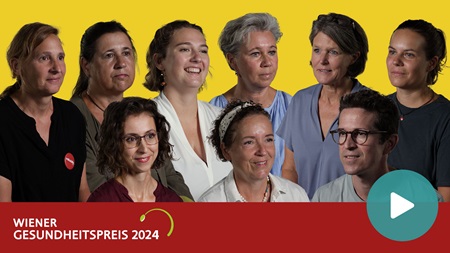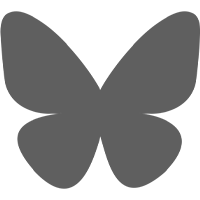Sabine Rauscher: My name is Sabine Rauscher. I am the founder of “A G’spia fürs Tier” from Volkshilfe Wien. And we are a support project for pet owners in Vienna who have limited financial resources. We are active throughout Vienna. The requirement is, on the one hand, low income and on the other hand, that there is a problem or an emergency with an animal. On the one hand, we are here to make it possible for older people to go through rehab or a hospital stay and feel reassured that we will take care of their animals. We have a pool of 80 to 90 volunteers who are committed and provide foster homes or also support with dog-walking services. At the same time, with our current focus on older people, we also saw an opportunity to expand our volunteer pool. That is of course a huge advantage for us, because the project can also be sustained through voluntary work. And they are very valuable for us, because they have free time, and we offer them a meaningful activity by allowing them to support other people. We hope that our project will of course continue. The high number of requests for our support program proves us right. We also continue these animal trainings, and we continue to support all pet owners. And we also have quite a high number of inquiries for volunteer work, which of course makes us very happy, and we hope that we can continue to bring together many happy human-animal pairs.
Gudrun Jörgl: My name is Gudrun Jörgl. I work for the Mobile Intervention Team of Caritas Vienna. We offer clinical-psychological counseling for people in Vienna’s basic care system, funded by the City of Vienna. With the displaced people from Ukraine, the number of older people in Vienna’s basic care system has risen very, very sharply. That’s where the idea for this project arose in our team. The project “Aging with Dignity” is aimed precisely at this target group: older people, people over 60 years old in Vienna’s basic care system. The goal is really to promote psychosocial health, by creating meeting spaces through group activities where people can come into contact with each other, exchange ideas, get to know each other, and in the context of these activities also gain health-promoting knowledge, develop skills, and possibly also activate and develop new resources, in order to overall improve quality of life and enable people, far from their homeland, to age with dignity. It was possible to realize this project “Aging with Dignity” through funding from the Fund for a Healthy Austria. The overall idea was to implement the project in four Caritas facilities and then transfer this knowledge to other facilities in Vienna’s refugee aid system.
Astrid Pfeffer: My name is Astrid Pfeffer. I am a certified nurse and I head the “Network for Caring Relatives” at Fonds Soziales Wien. My team, all certified nurses, advise, train, support and accompany all those caring relatives who look after or care for a loved one in Vienna – and free of charge. We are aware that caring relatives are a support for the social and health system, and accordingly, of course, due to this so-called care work, they need support, guidance and assistance in their care situation and daily care. We started in January 2024 as part of a pilot project and since July 2025 we have been a permanent part of Fonds Soziales Wien, more precisely in the care and support services, a subsidiary of Fonds Soziales Wien. And in 2024 we were able to support and accompany around 750 clients. We support caring relatives, for example, through knowledge acquisition, that is, through modules, where we offer training, but also through exchange groups. This is very important to us, because caring relatives can connect with other caring relatives. And networking is thus promoted. Peer-to-peer support is also promoted. But we also do one-on-one training directly on site, directly at the cared-for person, for example in dealing with people with dementia, regarding communication, regarding changes in behavior, changes in personality. And here we can provide good support and guidance in all care situations.
Anita Rappauer: My name is Anita Rappauer. I work at the research office “queraum” and I focus on topics such as healthy and good aging. And in this field, together with my colleague Susu Dobner, I implement the project “Let’s Go Vienna”. The project “Let’s Go Vienna” is funded by the Ministry of Social Affairs, and it is about linking the topics of health promotion and digital participation of older people. Quite concretely, we develop interactive walks together with seniors. Interactive means that the walks are uploaded into the app “Actionbound”. This means you have the route in the app, you walk with a tablet or with a smartphone, and while walking you receive further information, can answer quiz questions or complete tasks. What is nice to observe in the project, especially during guided tours, is that people who may initially be a little skeptical and don’t like to use digital tools, at some point during a walk look over someone’s shoulder and answer a quiz question themselves or click on a link and see what additional information is available. The positive effect of the project, in my view, is really this combination of being active outdoors and, at the same time, digital learning and also acquiring something new, getting to know new things, new people, and taking a walk together.











